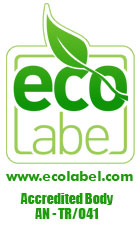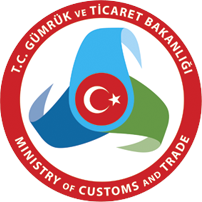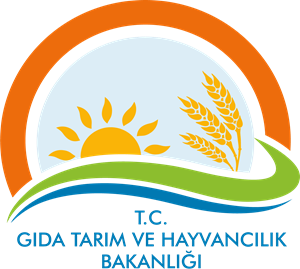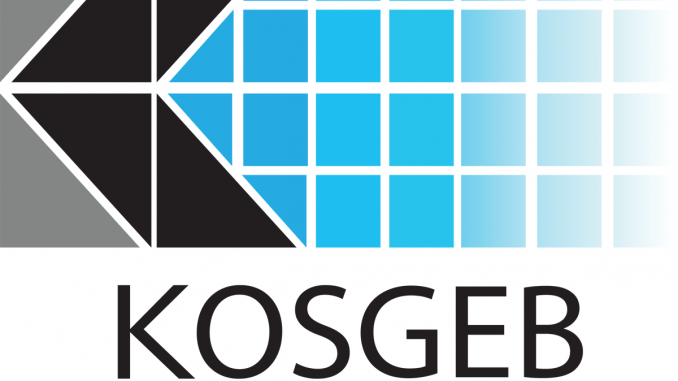ECO Natural Natural Product Certificate
ECO Natural Natural Product is defined as the first and only natural certification for Turkish products approved by ECOmark; At least percent 95 from natural sources, with the exception of water, should be natural content or component. ECOmark certified products use natural ingredients, keep ingredients away from health risks, do not use animal testing, and contain biodegradable or recycled material in packaging. The products should list all the materials on the packaging label. ECOmark also requires 100 natural odor and colorant on the face. Certified products are located in more than a thousand stores nationwide. Tens of products and content are certified.
In 2011, ECOmark, a global public health and safety organization, announced a platform to develop another standard for natural personal care products. Düzenleyici There is currently no regulatory and globally recognized definition for the term 'natural'. ECOmark has not developed a definition of the term Natural or its derivatives, but states that the term “natural ği can be used, where foods do not contain additional colors, artificial flavors or synthetic substances (unless they currently exclude GMOs). ECOmark has established a platform to interpret the term “natural.. While attempting to verify this interpretation, ECOmark will work with other governing bodies to establish a standard definition and process for obtaining a natural certification.
The new ECO Natural standard will help to develop authentic and high quality natural personal products by defining the use of the term 'natural'.
In natural product certification there is no legal definition of the word "natural" for food and consumer products. The use of the term 'natural' in the list of ingredients is not permitted, except for the expression 'natural aroma', which does not contain a correct and misleading product, color, artificial flavors or synthetic substances.
To protect and equip consumers to maximize their well-being, ECOmark has developed the Certification of Natural Products, a set of guidelines on whether a product can truly be considered “natural”. The standard covers all regulated consumer products.
Essence of "ECO Natural" Natural Product Standard
The ECOmark Natural Standard is based on natural components, safety, responsibility and sustainability.
Natural Ingredients: A so-called “natural malı product should consist only or at least almost exclusively of natural components and must be produced by suitable processes to preserve the purity of the content.
Security: A product labeled “natural dır should avoid any component suspected of human health risk.
Responsibility: No animal tests should be used to develop a product labeled “natural“.
Sustainability: A “natural li labeled product should use biodegradable components and the most environmentally friendly packaging.
Under the Natural Standard for all consumer products, the permissible materials are obtained or made from a renewable source, which exists in nature (flora, fauna, mineral) and contains no petroleum compounds. Restriction of harmful chemicals and natural degradability are aimed. The standard will help you become more educated about naturally accepted content and processes.
Ecological Cycle
Ecology is a branch of biology that examines living organisms and their relations with their environment. Ecological cycle, water, minerals, nitrogen, oxygen and carbon, such as substances, water, air and soil between the transformation into a variety of forms, is the continuous circulation in nature.
The area of living space for living organisms, the depth of a thousand meters of the oceans and the atmosphere altitude of six thousand meters above sea level is called the biosphere in biology. The biosphere is composed of water, air and soil and is a living space for living things. Biologically, animals living in this area are called fauna and all plants are called flora.
In the biosphere, living beings form a cluster of living things. These living clusters form the ecosystems of the physical environment, in other words, their relationship with the inanimate environment. The ecosystem is a community of living, and there are three groups of living things: producers, consumers and disintegrators. Producers are photosynthetic organisms. Consumers are usually carnivorous and herbivores. The disintegrants consist of bacteria and fungi. Producers make photosynthesis, consumers breathe, decomposers decompose organic residues.
Ecosystems are an energy and food chain and the main source is the sun. Energy and substances create a cycle within the ecosystem. In order to sustain life in nature, some important substances must be reproduced at the rate they are consumed. Nitrogen is very important for all living things. Every living thing must provide nitrogen as organic or inorganic. Likewise, water is an indispensable substance for all living things. These substances must have a cycle. In simple terms, the ecological cycle is a phenomenon that a number of substances used in nature by living beings become reusable and that this process persists.
However, ecological cycles are adversely affected by various pathways, especially human interventions. For example, the rapid rise of the population, the development of technology, urbanization and the advancement of the industry have increased the demand of societies for water. Overuse of water, urbanization and population growth, increased water use in industry, new dams and canals, destruction of vegetation are all factors that disrupt the ecological cycle of water.
Prepared by our organization and authorized by a foreign accreditation institution Ekomark © Standardis important to prevent further destruction of the ecological cycle. Our company, nature-sensitive manufacturing companies Ekomark © Tag allow use.
Different information may be needed on the ecological cycle. For more information about this subject and the Ekomark © Label, please contact our company immediately.
What is the Eco Certificate
According to estimates, the world's population is doubling every 35 per year. With this increase in population, consumption and consequently decrease in natural resources and pollution formation are increasing. Today, environmental problems such as global climate changes, ozone depletion, acid rain, toxic residues, air and water pollution are more clearly felt. The ecosystem of our world is having difficulty in meeting the demands. Great efforts are being made to prevent this bad trend, especially in the European Union countries. Both consumers and manufacturers are expected to pay more attention to human health and the protection of nature. As a result of these efforts, a large number of ecological product labels designed in the European Union countries have been designed.
There are generally two thematic approaches in ecological label systems. Either production systems are evaluated or products are evaluated. In labels based on production systems, first of all, environmentally friendly production is evaluated, but the product is also evaluated. With the Eco-Label system put into practice by the European Union in 1992, it was developed by our organization in our country. Ekomark © Standard also shows an approach in this direction.
Production ecology is a versatile, power controllable and complex system. The protection of the environment during production and proving that this is done in a system has become a necessity. Ekomark © Tag, Eco-Label and all similar ecological labels guarantee that the products do not contain harmful substances and that they are produced with care to protect nature.
ecological labels The aim of the system is to ensure that consumers receive healthy products and to maintain the ecological balance of the world. The Ekomark © Tag serves this purpose.
There are many ecological product labels developed in European Union countries and generally applied in their own countries and sometimes accepted in other countries. These include the Blue Angel label in Germany, the ECO Quality Symbol in the Netherlands, and the Nordic Swan Label in Sweden, Norway, Iceland and Finland. Of these, the Blue Angel Label has been valid since 1978 and has been developed for many products other than food and medicine.
If different information is needed about what the Ekomark © document and the Ekomark © Tag do, our company's managers and employees are ready to support.







